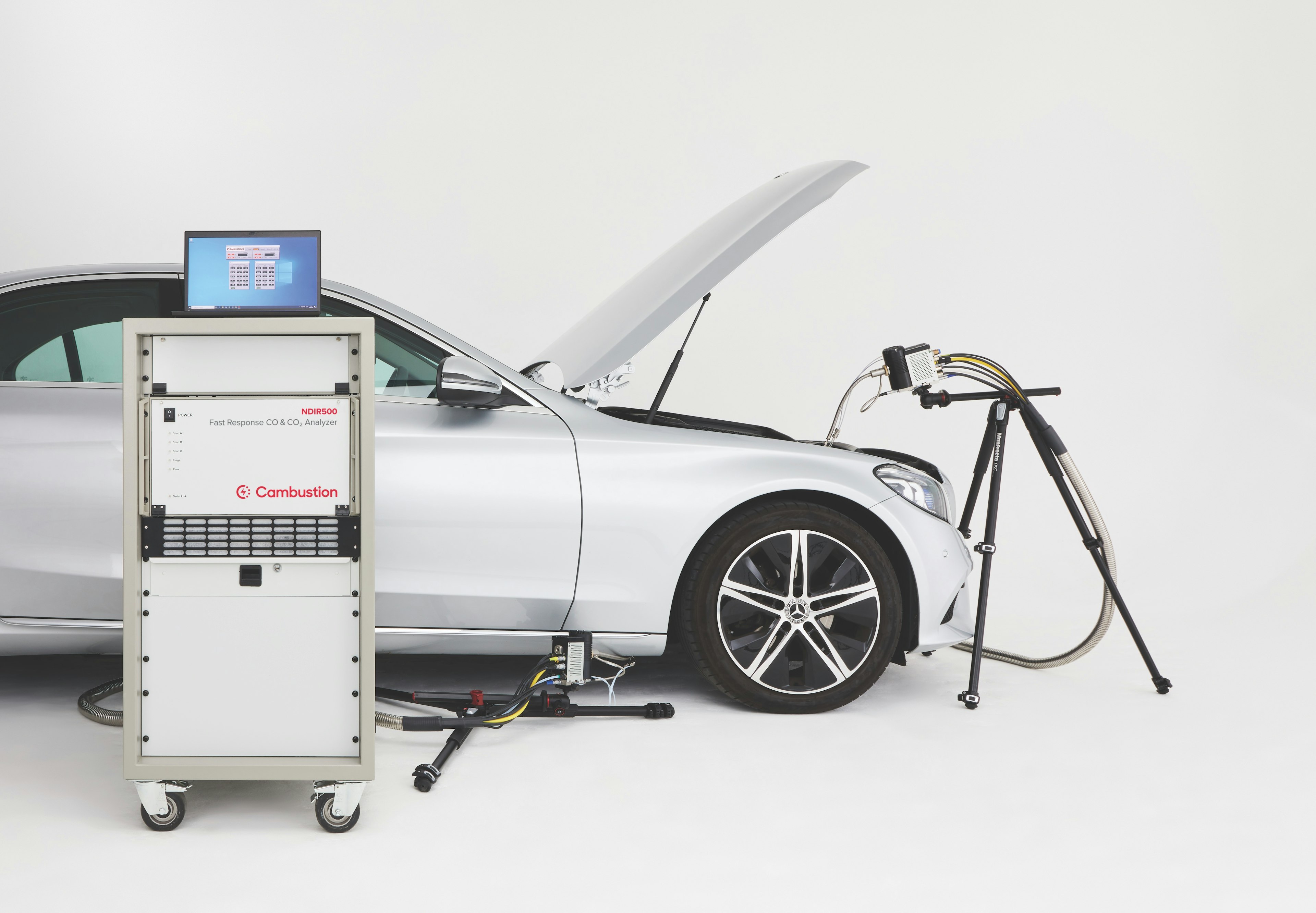NDIR500 | CO & CO2 Analyzer
Conventional NDIR 1-2 second response time
Cambustion Fast NDIR 8 millisecond response time
The Non-Dispersive Infra-Red (NDIR) measurement principle is the industry-standard method of measuring engine exhaust CO & CO₂ concentration. Conventional NDIRs have response times of 1-2 seconds, and are typically used to measure "bag emissions" where the concentration changes very slowly.
Typical uses of fast NDIR system
The Cambustion NDIR500 fast CO & CO₂ analyzer has a T10-90% response time of 8 milliseconds which allows for measurement of very fast transient exhaust or intake gas. The robust sampling system can be configured to cope with positive or negative fluctuating pressures which provides stable EGR measurement without pressure interference during transient turbocharged or throttled operation. This yields significant additional information about transient EGR delivery compared with conventional EGR measurement which tends to be one of the slower components to be measured in a standard bench analyzer.
The ability to measure cycle-by-cycle exhaust port CO & CO₂ can provide fast fuel:air ratio information for burning cycles during cold start which aids transient fuelling calibration and generally, the measurement of transient exhaust gas streams (both pre- and post catalyst) can provide after-treatment dynamic information which is otherwise obscured by slow response instruments.
NDIR500 Brochure
For more information download a brochure. Please contact Cambustion for more information and prices.
Applications
The NDIR500 is frequently used to calibrate and develop Exhaust Gas Recirculation (EGR) systems for NOₓ control. Through measurement of the CO₂ concentrations in the exhaust, and at various points through the EGR system, the system behavior can be measured and models verified.
The NDIR500 can make measurements of the CO₂ concentration in pre-combustion gas sampled from the cylinder. This allows the total residual gas fraction to be measured (i.e. internal and external EGR) and is particularly useful in revealing features such as poor EGR distribution on multi-cylinder engines, or the effects of variable valve timing on trapped residuals.
During cold start of a spark ignition engine, significant fuel puddling can occur in both port- and direct-injection engine types. This fuel is not available for combustion at the spark, and subsequently exits the cylinder through the exhaust valve. The situation may arise where combustion is lean (low availability of vaporized fuel at spark) but the engine out hydrocarbon concentration is very high.
This high HC concentration can cause sensors such as UEGOs to incorrectly indicate the AFR. By simultaneously measuring the CO & CO₂ concentration in the burnt gas, the NDIR500 can be used to calculate the AFR (or lambda) for the gas which took part in combustion. This calculation can be performed for each firing cycle during and after engine start. Such data is particularly useful when looking at GDI engine start (where the time available for vaporization is less) or when using alternative fuels such as ethanol, which vaporizes less readily.
The NDIR500 is available with support for AK protocol, allowing easy integration with the test bench for improved test reliability and reduced workload.
To read more on fast gas analyzer applications such as residuals measurement, AFR calculation etc please visit our page on Spark Ignition Engines.
See Applications and sample data for more information on these and other applications.
Key Application Notes
| Title | Data Type | Download File | Size | Last Updated | |||||
|---|---|---|---|---|---|---|---|---|---|
| Title | Flame Traverse Sampling | Data Type | Application note | Download File | cld06v01-fast-gas-analysis-traversing-a-methane-flame.pdf | Size | 1.69 MB | Last Updated | |
| Title | Mobile CO&CO₂ measurement on-board a diesel vehicle | Data Type | Application note | Download File | ndir11v01-mobile-co-co2-diesel.pdf | Size | 461.45 KB | Last Updated |
Need more information? Connect to an expert
